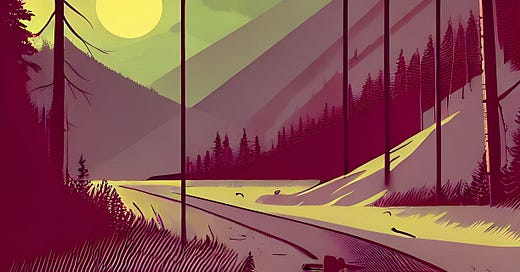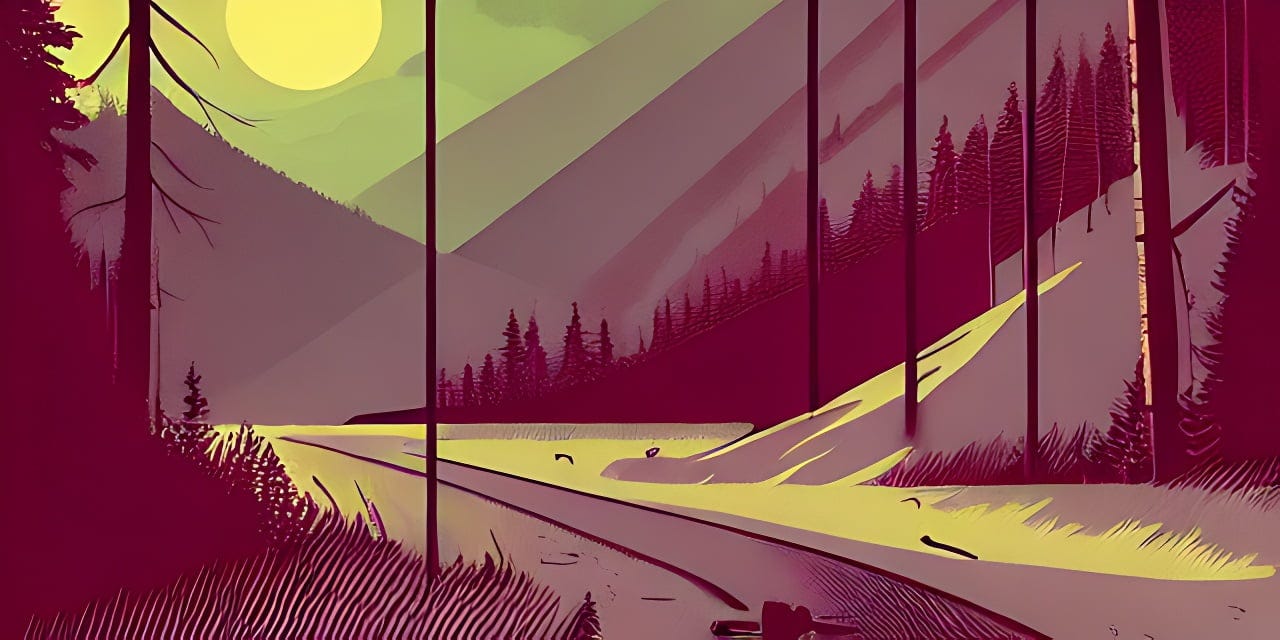What's in a Kerouac sentence?
Simple sentences are great. But once in a while, a meandering river in the middle of your essay can really ring the soul.
Jack Kerouac was a famous writer from 1950's, but he referred to his own practice as "sketching." Like a painter, he'd look around slowly to soak in and reflect on the details. As images and memories bubbled up, he'd scribble them into flowery, never-ending sentences.
When Kerouac writes, it feels like he has a direct vein into the subconscious, for better or worse. I admire his ability to access "the source," but he hated editing. A natural result of automatic writing is unpolished noise. His critics have said, "That's not writing, that's typing."
But, if you're patient, among the noise are holy, unbelievable sentences. I make a point to save these. This one is from Dharma Bums. Most of his books are "auto-fiction," meaning the characters and plots closely match his life experience. After three days of poetry readings, Buddhist rituals, and orgies in San Francisco, he heads north to a National Park and writes this on a hike:
"The woods do that to you, they always look familiar, long lost, like the face of a long-dead relative, like an old dream, like a piece of forgotten song drifting across the water, most of all like golden eternities of past childhood or past manhood and all the living and the dying and the heartbreak that went on a million years ago and the clouds as they pass overhead seem to testify (by their own lonesome familiarity) to this feeling."
Before I dissect this sentence and suck the magic out of it, I just want to say, damn. You can see and feel the uncanny nature of the woods. The images are specific, but open-ended. The phrase "long-dead relative" is like a fill-in-the-blank, charging the whole sentence with emotion.
Subscribe to unlock this post, and everything else featured in my Craft section.
Keep reading with a 7-day free trial
Subscribe to Essay Architecture to keep reading this post and get 7 days of free access to the full post archives.




